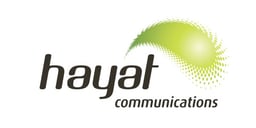Guest blog by Dave Bell, Co-founder and CEO of Gummicube.
Competition for new users in the mobile app stores, specifically Google Play and the Apple App Store, has steadily increased as both stores now boast in excess of 1.5 million available apps. When focused on deploying apps that get noticed, it’s developers to consider optimizing their app store listings to insure the best rankings.
The costs of acquiring a loyal user through paid install campaigns exceeds $2 per user as apps that monetize outside of the app store compete with games and subscription-type services. For example, apps like Candy Crush and Clash of Clans pay more for ad space because it was their best option to monetize users. Then, subscription services like Netflix, HBO, Hulu, Spotify and others figured out the app stores provided a lucrative channel for new users. Several new categories of mobile apps are emerging with disparate monetization methods and benefits: chain retail, enterprise and local retail/small business. With major retailers entering the app space which include Target, Macy’s and Starbucks, the competition is fierce for acquiring and retaining users.
Apple’s partnerships with enterprise software and services giants starting with IBM and expanding with Cisco, Salesforce and even Microsoft have opened the floodgates for enterprise-class mobile apps. Now Google is doubling-down on mobile apps with web search rankings boosts for web content that has “app parity” (also resides in an app), and favors business with mobile apps in local search results. Games, utilities, subscription services, enterprise apps, business apps, chains and local retailers are all competing for users in the channel that drives more than 60% of new app downloads – the app stores.
Similar to a website that ranks at the top of a relevant Google search, mobile apps that optimize their app store listing for better rankings acquire organic traffic and users without having to pay per install. The app store listing provides Apple and Google information about your app for indexing and ultimately ranking in app store search results, and provides the base for driving visibility and converting store views into users. App quality - as measured by retention and ratings - has a large impact on store rankings. An optimized app store listing is an asset that provides a long-term, defendable position to a mobile app publisher. The process for building and maintaining an optimized app store listing is called app store optimization - or ASO.
As one would expect, high-quality apps that have received good ratings and have frequent use and high retention do well in app store search rankings, but what they rank for is largely driven by the app store listing. As developers prepare to publish their apps, they should consider several variables that can impact how an app is indexed and where it ranks in the stores – all the process of app store optimization.
ASO and the App Store Listing
Google Play and Apple have slightly different app store listing fields and approaches to indexing an app, but the words and phrases used to describe the app are important in both stores. Apple uses a keywords field where developers can explicitly state which search terms are relevant to their app. Google does not use a “stated keywords” field and instead scans your app’s app title and descriptions similar to how they would a page on the web.
Even with their different approaches, the strategy for the app publisher is the same:
Many ASO tools provide keyword suggestions and volume estimates based off of web search data.
 App store search is different than web search, and using the words your target market uses when searching the app stores is important when crafting the app listing. Tools from true app store intelligence platforms can help you build a complete app store listing using actual app store data to find ultra-relevant words and phrases, instead of using web search data. By collecting app store search data for several years, Gummicube has shown the majority of app store search is for phrases about features. The balance of app store search is generally for specific brands. For example, “emoji messenger app” is a three word, feature-based search phrase, whereas “Whatsapp messenger” is a branded search.
App store search is different than web search, and using the words your target market uses when searching the app stores is important when crafting the app listing. Tools from true app store intelligence platforms can help you build a complete app store listing using actual app store data to find ultra-relevant words and phrases, instead of using web search data. By collecting app store search data for several years, Gummicube has shown the majority of app store search is for phrases about features. The balance of app store search is generally for specific brands. For example, “emoji messenger app” is a three word, feature-based search phrase, whereas “Whatsapp messenger” is a branded search.
Search using feature-based phrases is very different from how people search the web, rendering web-based keyword tools virtually useless. By building relevant keyword and phrase combinations in the limited space available, an app can be positioned to appear in relevant search results and downloaded by a relevant, targeted audience. This relevant audience is much more likely to install your app, creating a high conversion rate that signals the app stores that your app is a relevant and attractive result - pushing your app up the rankings.
Finding the target words and phrases that generate the best conversion rates, best user lifetime values and best app store rankings can then be expanded upon at the expense of the worst performing words and phrases in your app listing. By focusing on the ongoing process of optimization, developers can achieve better rankings and acquiring more organic users without the expense of paying per install, providing a better ROI than any other mobile app marketing effort.
Learn more about app store optimization.
A related blog story on enterprise app stores that rock.
About the Author
Dave Bell is the Co-Founder and Chief Executive Officer of Gummicube. In this role, Dave is responsible for overseeing the business strategy for the company, driving growth and market development. Dave is a pioneer of the mobile entertainment industry with more than 15 years of experience publishing, marketing and distributing mobile applications and games across carrier, direct to consumer and app store channels.
Competition for new users in the mobile app stores, specifically Google Play and the Apple App Store, has steadily increased as both stores now boast in excess of 1.5 million available apps. When focused on deploying apps that get noticed, it’s developers to consider optimizing their app store listings to insure the best rankings.
The costs of acquiring a loyal user through paid install campaigns exceeds $2 per user as apps that monetize outside of the app store compete with games and subscription-type services. For example, apps like Candy Crush and Clash of Clans pay more for ad space because it was their best option to monetize users. Then, subscription services like Netflix, HBO, Hulu, Spotify and others figured out the app stores provided a lucrative channel for new users. Several new categories of mobile apps are emerging with disparate monetization methods and benefits: chain retail, enterprise and local retail/small business. With major retailers entering the app space which include Target, Macy’s and Starbucks, the competition is fierce for acquiring and retaining users.
Apple’s partnerships with enterprise software and services giants starting with IBM and expanding with Cisco, Salesforce and even Microsoft have opened the floodgates for enterprise-class mobile apps. Now Google is doubling-down on mobile apps with web search rankings boosts for web content that has “app parity” (also resides in an app), and favors business with mobile apps in local search results. Games, utilities, subscription services, enterprise apps, business apps, chains and local retailers are all competing for users in the channel that drives more than 60% of new app downloads – the app stores.
Similar to a website that ranks at the top of a relevant Google search, mobile apps that optimize their app store listing for better rankings acquire organic traffic and users without having to pay per install. The app store listing provides Apple and Google information about your app for indexing and ultimately ranking in app store search results, and provides the base for driving visibility and converting store views into users. App quality - as measured by retention and ratings - has a large impact on store rankings. An optimized app store listing is an asset that provides a long-term, defendable position to a mobile app publisher. The process for building and maintaining an optimized app store listing is called app store optimization - or ASO.
As one would expect, high-quality apps that have received good ratings and have frequent use and high retention do well in app store search rankings, but what they rank for is largely driven by the app store listing. As developers prepare to publish their apps, they should consider several variables that can impact how an app is indexed and where it ranks in the stores – all the process of app store optimization.
ASO and the App Store Listing
Google Play and Apple have slightly different app store listing fields and approaches to indexing an app, but the words and phrases used to describe the app are important in both stores. Apple uses a keywords field where developers can explicitly state which search terms are relevant to their app. Google does not use a “stated keywords” field and instead scans your app’s app title and descriptions similar to how they would a page on the web.
Even with their different approaches, the strategy for the app publisher is the same:
- Use words that are extremely relevant to the app
- Use descriptive words focused on features
- Use screenshots and descriptions that convert viewers to users
Many ASO tools provide keyword suggestions and volume estimates based off of web search data.
Search using feature-based phrases is very different from how people search the web, rendering web-based keyword tools virtually useless. By building relevant keyword and phrase combinations in the limited space available, an app can be positioned to appear in relevant search results and downloaded by a relevant, targeted audience. This relevant audience is much more likely to install your app, creating a high conversion rate that signals the app stores that your app is a relevant and attractive result - pushing your app up the rankings.
Finding the target words and phrases that generate the best conversion rates, best user lifetime values and best app store rankings can then be expanded upon at the expense of the worst performing words and phrases in your app listing. By focusing on the ongoing process of optimization, developers can achieve better rankings and acquiring more organic users without the expense of paying per install, providing a better ROI than any other mobile app marketing effort.
Learn more about app store optimization.
A related blog story on enterprise app stores that rock.
About the Author
Dave Bell is the Co-Founder and Chief Executive Officer of Gummicube. In this role, Dave is responsible for overseeing the business strategy for the company, driving growth and market development. Dave is a pioneer of the mobile entertainment industry with more than 15 years of experience publishing, marketing and distributing mobile applications and games across carrier, direct to consumer and app store channels.





Comment